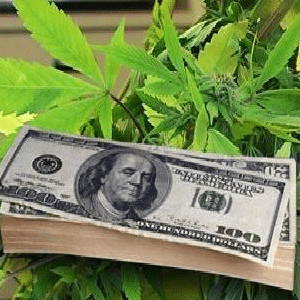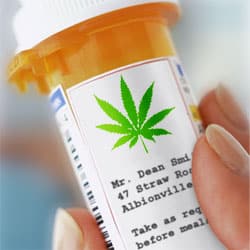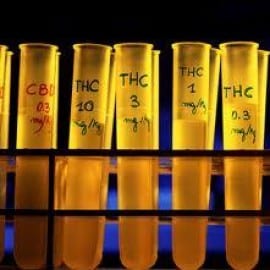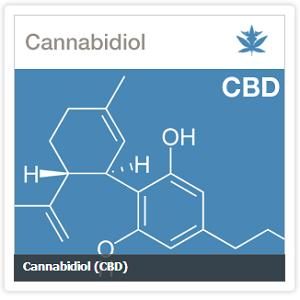 By Steve Elliott of Toke of the Town
By Steve Elliott of Toke of the Town
The U.S. federal government’s Department of Health and Human Services seems about ready to award exclusive rights to apply marijuana as a medical therapeutic. You read that correctly: “exclusive rights.”
Now, I don’t think of myself as a conspiracy theorist. But when the federal government keeps taking actions that, even when considered separately but especially when viewed together, all seem to be part of a bigger plan to pave the way for the pharmaceutical industry to bulldoze the cottage medical marijuana industry, I start getting antsy.
“We find it hypocritical and incredible that on the one hand, the U.S. Department of Justice is persecuting cannabis patient associations, asserting that the federal government regards marijuana as having absolutely no medical value, despite overwhelming clinical evidence,” said Union of Medical Marijuana Patients director James Shaw. “On the other hand, the Department of Health and Human Services is planning to grant patent rights with possible worldwide application to develop medicine based on cannabis.”
“Though UMMP welcomes any potential new research that could come from KannaLife Sciences’ federal endorsement, it is highly disconcerting that the contemplated grant is an exclusive one,” the organization posted on its website.
?”It is a grave injustice that patient association[s] in California are now facing a coordinated and comprehensive attack by the DOJ, while one pharmaceutical company in New York stands to profit tremendously from the monopolization of medical cannabis thanks to the HHS” UMMP posted.
You may recall that Toke of the Town columnist Ron Marczyk pointed out that the U.S. federal government, a few years back, took out patents on “cannabinoids as antioxidants and neuroprotectants,” even while officially denying that cannabis has any medical value.
 Well, turns out they weren’t just holding onto that patent for the fun of it. The latest piece of the puzzle to fall into place is the announcement last month in the Federal Register.
Well, turns out they weren’t just holding onto that patent for the fun of it. The latest piece of the puzzle to fall into place is the announcement last month in the Federal Register.
After years of inaction, it seems they are “contemplating the grant of an exclusive patent license to practice the invention embodied in its U.S. Patent to a company called KannaLife Sciences, Inc., which has offices in New York.
According to Shaw, “it makes no sense for the government to provide U.S. Patent 6,630,507, which the government owns, to a single company with exclusive rights.”
Shaw urged medical marijuana patient associations and patients using cannabis for medicinal reasons to protest this giveaway to one pharmaceutical firm.
Who, exactly, is this “KannaLife Sciences,” based at 4 Tradewinds Drive in Bayville, N.Y.?
Here’s their Facebook page, on which they proudly shared a link to the Federal Register notice, but as yet haven’t responded to this question posted 14 hours ago from a Facebook user: “you guys get exclusive rights to a USD Gov’t patent on medical marijuana as they put CA & CO dispensaries out of business?!”
Nor to a comment to that post: “If your company is as socially responsible as you claim to be, you will answer this.”
The founder of KannaLife Sciences is one Thoma Kikis, according to AngelList, who apparently also founded Inventlab and something called Ovie Entertainment. Kikis, a designer, filmmaker and entrepreneur, co-produced the film Alps (by Oscar-nominated director Yorgos Lanthimos), produced Darkon (being remade by Brad Pitt’s Plan B and distributed by IFC), and was executive producer of It’s A Disaster (with Julia Stiles and David Cross).
According to the LinkedIn profile of CEO Dean Petkanas, “KannaLife Sciences, Inc. is a socially responsible, developmental stage phyto-medical/bio-pharmaceutical company that specializes in the research, development, and packaging of pharmacological products derived from botanical sources, including the cannabis taxa.”
KannaLife’s plan for generating revenue and growth is intended to come from (i.) KannaLife’s proprietary branding POS and hermetic packaging systems for the medical marijuana industry; (ii.) KannaLife’s branded anti-oxidant and recovery skin care ointments and creams; and (iii.) the development, marketing and sale of KannaLife biopharmaceutical and phyto-pharmaceutical products derived from cannabis for the treatment of patients suffering with neuro-degenerative, neuro-toxic and oxidative stress related diseases and disorders.
The Company’s focus on product development was born from the burgeoning market in the United States in the use of traditional healthcare models of treatment, utilizing medicinal marijuana and other APIs found in the genus of the cannabis taxa.
?KannaLife intends to profit from the acquisition, development, marketing and sale of phyto-medical drugs and products derived from cannabinol (“CBN”) and cannabidiol (“CBD”) compounds as art and parcel to the Company’s drug development plan. The disease indications to which the Company intends to target for the development of its products are centered on patients suffering from diseases with neuro-degenerative and/or neuro-toxic profiles.
In addition the Company has developed a unique “blue ocean” approach to participating in the fast growing multi-billion dollar medical marijuana industry in establishing a “Gold Standard” in QA for delivering a consistent and reliable product to the consumer for dispensing medicinal marijuana in hermetically sealed packaging.
“The prospective exclusive license territory may be worldwide, and the field of use may be limited to:
 “The development and sale of cannabinoid(s) and cannabidiol(s) based therapeutics as antioxidants and neuroprotectants for use as delivery in humans, for the treatment of hepatic encephalopathy, as claimed in the Licensed Patent Rights.” [Italics added.]
“The development and sale of cannabinoid(s) and cannabidiol(s) based therapeutics as antioxidants and neuroprotectants for use as delivery in humans, for the treatment of hepatic encephalopathy, as claimed in the Licensed Patent Rights.” [Italics added.]
Hepatic encephalopathy’s effects are due to liver impairment or liver failure, and can range from forgetfulness, confusion and irritability to inverted sleep-waking patterns, tremor, difficulties with coordination and trouble writing. More severe cases result in lethargy, somnolence, and eventually coma. In the intermediate stages, a characteristic jerking of the limbs — asterixis — is observed. There is disorientation and amnesia, and “uninhibited behavior” may occur.
Coma and seizures are found in the most advanced stages of hepatic encephalopathy; cerebral edema (brain swelling) leads to death.
Now, does the phrase “for the treatment of hepatic encephalopathy” mean the license is limited to that one condition, or is this a broader license to cover more or all medicinal applications of cannabinoids?
A mid-day Friday email from Toke of the Town to KannaLife got a response from founder Thoma Kikis, who referred me to CEO Dean Petkanas; a follow-up call to Petkanas hadn’t yet been returned by late afternoon.
In the meantime, let’s look some more at the language of the Federal Register notice.
“The technology describes pharmaceutical compositions of cannabinoids that are useful as tissue protectants, such as neuroprotectants and cardioprotectants,” the notice reads. “The cannabinoids compounds may be used, for example, in the treatment of acute ischemic neurological insults or chronic neurodegenerative diseases.”
The next paragraph gets really interesting, because it clearly reveals the anti-scientific and even superstitious way our United States government views the psychoactive effects of cannabis. (Please note that there is a real difference between “toxicity” — which means it’s poisonous, and can produce death — and “psychoactivity,” which can mean, in the case of cannabis, that it just changes your mental state.)
“Nonpsychoactive cannabinoids, such as Cannabidiol (CBD), are particularly advantageous since they avoid toxicity that is encountered with psychoactive cannabinoids at high doses,” [italics added], the notice reads.
See how they just turned “psychoactivity” into “toxicity,” folks?
There you have it, right from the eminently trustworthy United States Government, that same government which has patented the medical use of natural compounds occurring in the cannabis plant: THC is toxic.
Of course, it’s demonstrably not only nontoxic, but is, as DEA Administrative Law Judge Francis L. Young pointed out, “one of the safest therapeutically active substances known to man.”
Should it really surprise anyone to find the federal government telling an outright lie when it comes to marijuana?
This is, after all, the same government that has been handing out free marijuana for 30 years to patients in the Compassionate Investigative New Drug program, even while claiming cannabis has no medical value and thus classifying it as a Schedule I narcotic.
According to the notice in the Federal Register, public comments will be accepted through Monday, December 19.
Comments need to be submitted in writing by Monday, Dec. 19, to:
Betty B. Tong, Ph.D.
Senior Licensing and Patenting Manager
Office of Technology Transfer
National Institutes of Health
6011 Executive Boulevard, Suite 325
Rockville, MD 20852-3804
Telephone (301) 594-6565 (note that NIH will only accept written comments for consideration)
Fax (301) 402-0220
Website https://www.ott.nih.gov/contactus/licensing_and_patenting.aspx
Email [email protected]
Article From Toke of the Town and republished with special permission.



